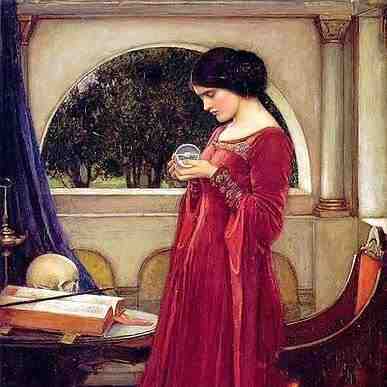3.b) Reliable brain functions:
Mathematical logic and math memory
Both the preconceptions and the automatic cognitive responses are a product of the intellect throughout the individual development; on the other hand, the secure or reliable responses and the ultrafast are a result of the immediate logic of the intellect.
(Public domain image)

A specific vision is set out in the Conditional Evolution of Life about the logic and math memory when speaking about the method of verification of transmitted genetic information, possible models for contrasting the theory, and technological development of the breaks in the example on the automobile industry. The section genetic structure of intelligence of this book deals with the same perspective about those concepts and evolution.
Briefly summarizing, both operate on the combined result provided by billions of neurons created with the genetic information of a progenitor and another group of neurons of the other progenitor. That is, to the extent that both results coincide, they are reliable.
This mechanism implies a significant consumption of time because it is looking for the certainty of the responses. As soon as the results from the two sources are not identical, reliable reasoning or formal logic will stop.
3.c) Less reliable brain functions:
Intuition and non-mathematical memory
The fact that formal logic mechanism stops when there is not a 100% certainty does not mean that somewhat less sure but perhaps operative conclusions cannot be made within a reasonable margin of error. It is also possible that, at the end of this non-mathematical logic, there is a result that can be checked or verified by other means or perspective.
Intuition can reach far beyond simple reasoning. The previous cognitive processes bring the essential idea to intuition definition.
From this perspective of the cognitive science, each person will have a fair amount of intuition in comparison with their mathematical logic or intelligence in the strict sense according to the equilibrium or imbalance of the capacities inherited from their progenitors.
The same argument about the nature of logic can apply to mathematical and standard memory. Consequently, standard memory is much more potent than math memory because it does not demand absolute certainty from its results.
Given that there are no worries about the error when using the cognitive processes of the non-mathematical memory, there is a personal relaxation. It is worth pointing out that not having the inner certainty of the responses it does not mean the results are incorrect.
When a cognitive process demands a 100% reliability, response time can be excessively long. In complicated programs, when there is not a severe error like in voice-recognizing, 100% reliability will never be optimal; the system would try to find a balance between the risk of error and losing time and energy to reduce this risk, just like the human brain.
The computer works better in cases requiring 100% reliability such as calculations and math memory; on the other hand, it is worse when the required consistency of the cognitive process is low, such as languages.
